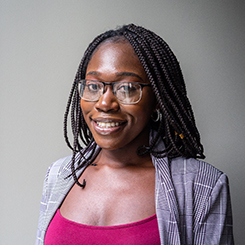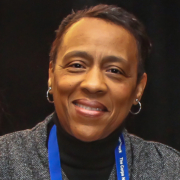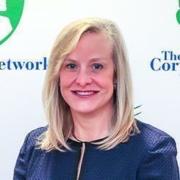

The Corps Network and its partners Jobs For The Future, National Youth Employment Coalition, YouthBuild USA, Brandeis University, and Miami-Dade College held a congressional briefing on Postsecondary Success Strategies for Opportunity Youth on Wednesday. This session provided a setting to share the success, design, and implementation of the Post Secondary Success Education Initiative (PSEI), which was completed in 2013.
The PSEI was created in 2009 to help connect Opportunity Youth to college and postsecondary education. The Corps Network joined the initiative in 2012. Using the “Back on Track” model, this initiative funded national youth development organizations and community-based organizations that would make it possible for disconnected youth to acquire a high school diploma or GED and necessary academic skills to make the transition and complete their postsecondary education or training. Taking place in Brooklyn, New York; Waukegan, Illinois; Miami, Florida; Oakland, California; and San Rafael, California, this initiative had participant success rates of 55% enrolled in postsecondary education with a 74% rate of persistence through 2+ semester (data from The Corps Network). More information about PSEI can be found here.
Speakers at Wednesday’s panel spoke about the design of Postsecondary Success Strategies, how to best implement them, and how federal policy intersects these issues. Speakers included Terry Grobe (Jobs for the Future), Alan Melchior (Brandeis University), Scott Emerick (YouthBuild USA), Mala Thakur (National Youth Employment Coalition), Capri St. Vil (The Corps Network), H. Leigh Toney (Miami-Dade College), Alex Nock (Penn Hill Group) and Jennifer Brown Lerner (American Youth Policy Forum). Tyler Wilson, Director of Government Relations for The Corps Network, moderated the briefing.
Panelists spoke about the success of the initiative, citing the partnership between Community Based Organizations and youth development organizations as a fundamental element of the program. PSEI “brings together community organizations who serve the same people but haven’t talked to each other” said Alan Melchior, Associate Director and Senior Fellow at the Center for Youth & Communities at Brandeis University. “This partnership goes two ways, strengthening both partners and cultivating a ‘college-going’ culture in our communities” said Mala Thakur, Executive Director of National Youth Employment Coalition.
At a federal policy level, postsecondary success (PSS) closely ties into the themes of innovation, partnerships, college/career readiness, and increased college access and persistence, which are priorities in the development of the Higher Education Act reauthorization. PSS bridges the gap between a high school diploma/GED and postsecondary opportunities, while helping to ensure persistence through the difficult first year. “An end goal for the administration is career advancement so there is a focus on college and career readiness. Programs [such as PSEI] are now savvy about documenting what works and their successes so we are now ready for policy discussions” said Jennifer Brown Lerner, Deputy Director at American Youth Policy Forum.
The early data for PSS is promising and points to an effective model for re-engaging Opportunity Youth in education and the workforce. We would like to thank the Open Society Foundations and the Bill and Melinda Gates Foundation for their generous support of PSS. We would also like to thank all panelists for their contributions to the briefing and support in Postsecondary Success Strategies.


































































